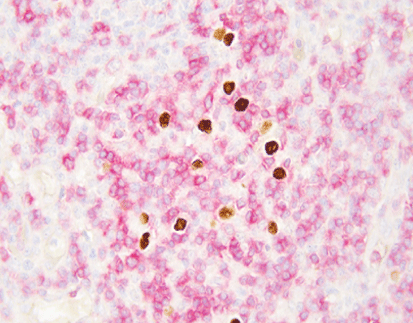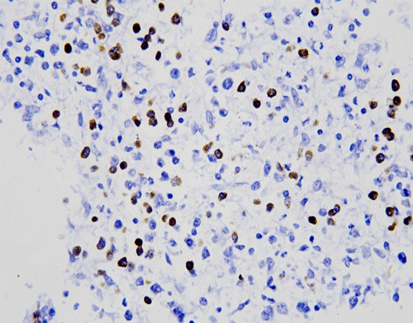What is CISH: Understanding Its Role in Immune System Regulation

By admin
Overview of CISH in Immune Function
Definition and Biological Role of CISH
Cytokine-inducible SH2-containing protein (CISH) belongs to the suppressor of cytokine signaling (SOCS) group. It acts as an important negative controller in managing immune responses via blocking feedback loops. CISH levels rise quickly after cytokine activation. It mainly works to adjust immune messaging routes, particularly in T cells and natural killer (NK) cells. By limiting cytokine actions, CISH supports immune balance. Plus, it aids in avoiding too much swelling or self-attacking responses.
How CISH Regulates Cytokine Signaling
CISH adjusts cytokine signaling by linking with the main parts of the JAK-STAT pathway. Once cytokines turn on the cell, CISH gets boosted. Its SH2 domain sticks to phosphorylated receptors or JAK kinases. This attachment helps form E3 ubiquitin ligase groups. Those groups cause the degradation of signaling proteins, which blocks additional downstream actions. In the end, cytokine signaling stays short and strictly managed.
CISH and the JAK-STAT Pathway
Mechanism of Action in Signal Suppression
The main way CISH suppresses signaling is by blocking the JAK-STAT pathway. This pathway is key to many cytokine-led immune responses. By marking JAK kinases or related receptors for ubiquitination and proteasomal breakdown, CISH lowers STAT phosphorylation and nuclear movement. This action limits gene transcription related to immune activation.
Implications for T Cell Activation
In T cells, CISH is a checkpoint molecule that avoids overactivation. It has been shown through studies that deletion or blockade of CISH augments T cell expansion, cytotoxicity, and cytokine production. This shows its function in immune tolerance and resistance to exhaustion. These results are also very pertinent to the research into immunotherapy. Regulation of CISH expression could enhance anti-tumor immunity.
Clinical Relevance of CISH Expression
CISH in Autoimmunity and Inflammation
Abnormal expression or function of CISH has been linked to autoimmune conditions. Such as rheumatoid arthritis and multiple sclerosis. In these conditions, there is inadequate suppression of cytokine signaling, contributing to tissue injury and chronic inflammation. This results from uncontrolled immune system activation.
Therapeutic Potential
As a candidate therapeutic target because of its regulatory function in immunity, CISH is of great interest. Targeting CISH by inhibition may promote immune responses against tumors or pathogens. Increasing its activity can improve the survival of patients with autoimmune disorders. People are attempting to test small molecules or genetic methods to regulate CISH activity for therapy.
Detection and Analysis of CISH Expression
Role of Proper Immunohistochemistry Techniques
Proper detection of CISH expression is essential for clinical diagnosis and fundamental research. Immunohistochemistry (IHC) is still one of the most common ways to view protein localization in tissue sections. However, it needs highly specific antibodies in addition to standardized protocols to yield valid results.
Recommended Tools from Celnovte for CISH Detection
Celnovte provides a complete solution for immunohistochemistry. They master the core research and development technology in this area. Currently, they offer more than 460 primary antibodies. They also have independently developed secondary antibody detection systems. For detecting proteins like CISH, their high-sensitivity murine monoclonal antibodies are perfect. This is because of their specificity and low background staining.
Application of Celnovte Products in Research
Using Celnovte Antibodies for Reliable Staining Results
Celnovte focuses on creating IVD-grade immunohistochemistry primary antibodies. Their custom services let researchers develop tailored murine monoclonal or human monoclonal antibodies specific to their targets. This includes rare proteins like CISH. It ensures the best performance across various sample types.
Enhancing Workflow with Celnovte’s Automated Stainers
Our fully automated immunohistochemistry staining machine can process 60 samples. It finishes staining in 2.5 hours. This greatly increases lab efficiency while keeping consistent quality across batches. It is especially useful when handling large numbers of clinical samples for biomarker analysis like CISH.
Optimizing Tissue Preparation for CISH Studies
Benefits of Precision Sectioning with Celnovte Microtomes
Proper sectioning is very important for reproducible IHC results. Although not directly stated above, Celnovte’s antibody integrated solutions include precision sectioning tools. These ensure even thickness across samples. This is critical when measuring expression levels, such as those seen with regulatory proteins like CISH.
Ensuring Consistent Quality Across Samples
It has benefits like good repeatability, small differences between batches, and high output. This consistency is crucial when comparing expression levels across patient groups or experimental conditions. It is especially important in immune modulation studies involving pathways regulated by proteins like CISH.
Streamlining Laboratory Processes with Automation
Integration of Staining and Sectioning Equipment
By combining automated stainers with sectioning equipment into a smooth workflow, labs can reduce human error. They can also increase throughput. This is a major advantage when doing high-volume screening studies on markers such as CISH.
Advantages of Using Full-System Solutions from Celnovte
Celnovte aims to create a full industrial chain that combines research and development, production, sales, and service. Their full-system solutions range from antibody development to staining automation. This allows researchers to concentrate on discovery instead of solving technical issues.
Supporting Research with Reliable Reagents and Tools
Choosing the Right Reagents for Immunochemical Analysis
Currently, we have more than 460 primary antibodies and fully automated staining platforms. These complete offerings make sure researchers can use validated reagents suitable for detecting subtle targets like intracellular inhibitors such as CISH.
How Celnovte Ensures Batch-to-Batch Consistency
The antibody engineering expression platform offers benefits like good repeatability and small batch-to-batch differences. This reliability helps long-term studies where steady reagent performance over time is necessary. It is particularly important when assessing therapeutic treatments targeting molecules like CISH.
FAQ
Q: What does the protein “CISH” do?
A: It serves as a negative regulator within cytokine signaling pathways. It inhibits JAK-STAT activity through receptor binding and protein breakdown mechanisms.
Q: Why is detecting CISH important in cancer research?
A: Because changing its expression can affect T cell activity, reducing it may improve anti-tumor immunity. This makes it a possible target for immunotherapy methods.
Q: Can I use custom antibodies from Celnovte specifically targeting rare proteins like human-specific variants of CISH?
A: Yes. Celnovte has a professional antibody development team. They support custom development services, including murine monoclonal antibodies made for your research needs.
Q: How does automation help improve reproducibility in detecting markers like CISH?
A: Our fully automated immunohistochemistry staining machine can effectively meet needs. It provides customers with high-quality staining results. It lowers variability from manual processes and ensures accuracy across tests.
For custom solutions tailored to your research on immune regulation proteins like CISH, contact us at info@celnovte.com or visit shop.celnovte.com.
RELATED PRODUCTS









